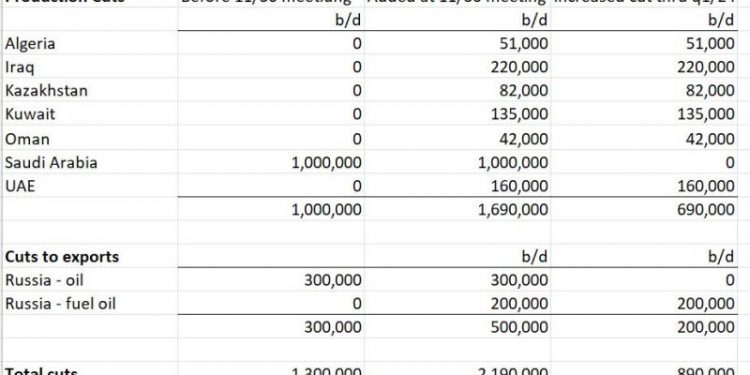In recent days, speculative comments and questions have arisen over the OPEC oil cuts and their effectiveness towards the global oil market. With the global oil demand growing in leaps and bounds, countries like Saudi Arabia are taking steps to ensure that the price of oil remains stable and keeps with the objectives of the cartel’s Algiers Accord, which was put into place in late 2016.
Ever since the Algiers Accord was implemented, many of the OPEC member nations have increased production, but according to the International Energy Agency, it was not enough to keep pace with the rise in global demand for oil. As a result, the price of crude oil fluctuated up and down in recent months and the cuts implemented by OPEC have not had the desired effect.
The skepticism here appears to be centered around the fact that the initial cuts have not had a noticeable impact on the price of oil. OPEC is currently discussing what more can be done to stabilize the market, revitalizing the consultancy process to determine production cut targets and the running of a monitoring committee to keep tabs on their efforts.
Onlookers and analysts also fear that a possible follow-up to the OPEC cuts’ effort could leave the cartel open to a worse outcome in the future due to an oversaturation in the market. Shale producers in the United States, Russia, and other parts of the world, are feeling a monetary incentive to increase their own production and flood the global markets.
A further balancing-out could ensue if OPEC removes too much supply, in which case the production gap left by the cartel could be taken up by non-OPEC members in the market, ultimately leaving the cartel-based producers at a loss. The ultimate goal for OPEC here is to ensure that their respective cuts have the desired effect without causing an increase in production from other parts of the world, creating a favorable balance that works in their favor.
For now, speculation abounds as to where the OPEC oil cuts will go and whether or not they will have the desired impact. It is clear that the current production level is unsustainable if the cartel wants to remain profitable and the effectiveness of the cuts at this stage will be an indicator of what the long-term prognosis looks like for OPEC and the global oil market.

















